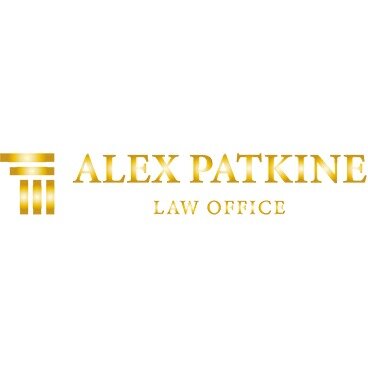Best Nonprofit & Charitable Organizations Lawyers in Tel Aviv
Share your needs with us, get contacted by law firms.
Free. Takes 2 min.
List of the best lawyers in Tel Aviv, Israel
About Nonprofit & Charitable Organizations Law in Tel Aviv, Israel
Nonprofit and charitable organizations in Tel Aviv, and Israel at large, operate under a specific legal framework designed to regulate their formation, activities, and governance. These organizations, which include amutot (nonprofit societies), public benefit companies, and charitable endowments, are essential in addressing societal needs such as education, healthcare, and social welfare. They must comply with laws that ensure their purposes remain charitable, their operations are transparent, and their funds are appropriately utilized for their intended missions. The Registrar of Amutot, under the Ministry of Justice, serves as the principal regulatory body overseeing these entities.
Why You May Need a Lawyer
Legal assistance may be necessary for various reasons when dealing with nonprofit and charitable organizations in Tel Aviv. Common situations include the formation and registration of an organization, ensuring compliance with tax regulations, handling employment law issues, managing contractual agreements, addressing governance and operational challenges, and navigating complex financial transactions or disputes. Lawyers play a critical role in guiding organizations through these processes, mitigating legal risks, and ensuring that they meet statutory obligations.
Local Laws Overview
The key legislative framework for nonprofit organizations in Israel includes the Amutot Law, 1980, which governs nonprofit societies, and the Companies Law, 1999, which also applies to companies set up for public benefit. These laws stipulate the guidelines for the formation, management, and dissolution of nonprofits, setting clear expectations for accountability and financial reporting. Additional regulations, such as requirements for maintaining tax-exempt status and registration with the Income Tax Authority, are vital for organizations to operate efficiently and legally.
Frequently Asked Questions
1. What is an amutah?
An amutah is a type of nonprofit organization in Israel akin to a charitable society, established to promote various social, cultural, educational, and philanthropic activities.
2. How do I establish a nonprofit organization in Tel Aviv?
To establish a nonprofit in Tel Aviv, you must register with the Registrar of Amutot and prepare detailed bylaws that outline the organization's purpose, governance structure, and operational procedures.
3. What are the reporting requirements for nonprofits in Israel?
Nonprofits must submit annual financial statements, board meeting minutes, and reports on activities to the Registrar of Amutot to demonstrate transparency and compliance with legal obligations.
4. Can a nonprofit engage in commercial activities?
Yes, a nonprofit can engage in commercial activities; however, the profits must be directed towards the organization’s charitable objectives and not benefit members personally.
5. What tax exemptions are available to nonprofits in Israel?
Nonprofits may qualify for tax exemptions on income and receive VAT refunds, provided they meet certain criteria defined by Israel’s tax authorities.
6. How do employment laws apply to nonprofit organizations?
Nonprofits in Tel Aviv must comply with national labor laws, including fair employment practices, workplace safety, and employee benefits.
7. Are there restrictions on foreign donations?
Nonprofits can receive foreign donations provided they comply with regulations requiring transparency and reporting of such contributions.
8. What is the process for amending the bylaws of a nonprofit?
Amending the bylaws typically requires a resolution passed by the organization’s governing body and approval from the Registrar of Amutot.
9. How can nonprofits advocate for policy changes?
While nonprofits can engage in advocacy, their activities must remain non-partisan and closely related to their declared objectives to retain tax-exempt status.
10. What is the role of the Registrar of Amutot?
The Registrar of Amutot oversees the registration and regulation of nonprofits, ensuring compliance with laws and maintaining public confidence in charitable entities.
Additional Resources
For comprehensive guidance and support, individuals and organizations may seek assistance from the following resources:
- Registrar of Amutot, Ministry of Justice
- Israel Tax Authority
- The Nonprofit Organizations Information Center
- Local chambers of commerce
- Israeli nonprofit law firms and legal advisors specializing in the third sector
Next Steps
If you need legal assistance with nonprofit and charitable organizations in Tel Aviv, consider the following steps:
- Identify specific legal needs concerning your organization.
- Research and select a qualified attorney with expertise in nonprofit law in Israel.
- Prepare relevant documentation and information to discuss with your legal advisor.
- Set up a consultation to explore legal strategies and understand compliance requirements.
- Consider ongoing legal guidance to ensure continued adherence to national and local laws.
Lawzana helps you find the best lawyers and law firms in Tel Aviv through a curated and pre-screened list of qualified legal professionals. Our platform offers rankings and detailed profiles of attorneys and law firms, allowing you to compare based on practice areas, including Nonprofit & Charitable Organizations, experience, and client feedback.
Each profile includes a description of the firm's areas of practice, client reviews, team members and partners, year of establishment, spoken languages, office locations, contact information, social media presence, and any published articles or resources. Most firms on our platform speak English and are experienced in both local and international legal matters.
Get a quote from top-rated law firms in Tel Aviv, Israel — quickly, securely, and without unnecessary hassle.
Disclaimer:
The information provided on this page is for general informational purposes only and does not constitute legal advice. While we strive to ensure the accuracy and relevance of the content, legal information may change over time, and interpretations of the law can vary. You should always consult with a qualified legal professional for advice specific to your situation.
We disclaim all liability for actions taken or not taken based on the content of this page. If you believe any information is incorrect or outdated, please contact us, and we will review and update it where appropriate.

















